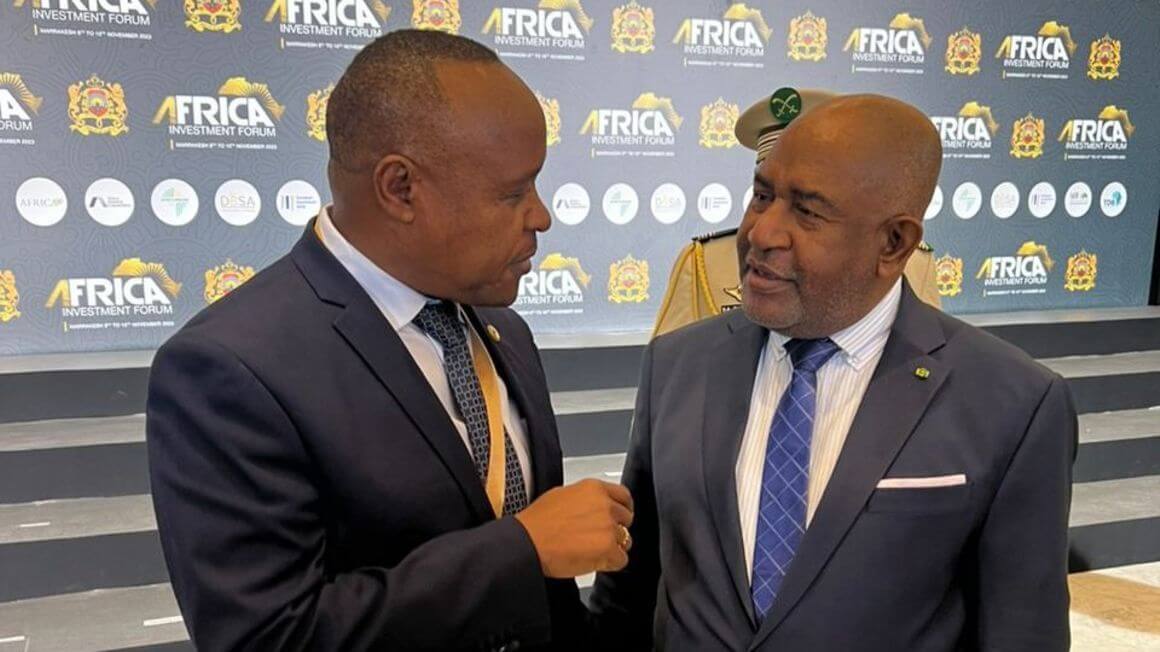
Our Projects are
Transforming African Trade
Quick Contacts
2nd Floor, Fidelity Insurance Centre Waiyaki Way, Westlands

East African Community (EAC) Secretary-General Peter Mathuki says Somalia could be admitted to the bloc this month.
An Ordinary Heads of State Summit is scheduled for November 23-24 in Arusha, and the region’s presidents are expected to endorse Somalia’s accession.
Dr Mathuki told a panel at the Africa Investment Forum in Marrakech, Morocco, on November 9 that the bloc is looking to expand to the entire Horn of Africa, with Ethiopia having expressed interest in joining it after Mogadishu.
“The East African Community is one of the building blocks of the African Union and it’s fast growing. We have DR Congo as the latest member, plus Kenya, Uganda, Tanzania, South Sudan, Burundi, Rwanda, and Uganda. That is a market of around 300 million people. And this November, we are likely to admit Somalia into the Community. The coastline of the East African Community will stretch almost 500,000 kilometres. And we look forward to more expansion; we are looking at Ethiopia, which has shown interest in joining the Community. So, at the end of the day, we are looking at a market of close to 700 million people,” he said.
The panel comprising leaders of African economic blocs, EAC, Comesa, Southern African Development Community and Ecowas, was discussing the quest to integrate Africa.
Dr Mathuki said the EAC is people-centred and emphasised the role of the private sector in driving intra-regional trade and integration. He said intra-EAC trade had grown twofold in the past decade, from less than 10 percent to around 20 percent currently.
Leaders who spoke at the forum extolled the role of transport corridors in integrating Africa and facilitating the implementation of the Continental Free Trade Area, AfCFTA.
Burundi’s Infrastructure minister Dieudonne Dukundane said the standard gauge railway from the port of Dar es Salaam to Burundi and DR Congo was going to be a game-changer in trade and exploitation of the rich mineral potential the three countries have, noting that once complete it would save his country about $70 million in transport costs.
“Failing to invest in a railway has been costly to our economy. We are 1,500 kilometres from the port of Dar es Salaam. When we take a round trip this makes 3,000 kilometres. And relying on roads means that you only carry 25 or 28 tonnes. With a railway in place, it will help us save nearly $100 per tonne. And, if we were running a business of nearly a million tonnes per year, we’d be saving not less than $70 million. So without a railway, in 10 years, we would have lost nearly $1 billion. This is the amount that is needed to build one,” the minister said.
Dr Mathuki said he was pushing for investment in infrastructure projects on the main corridors linking the Great Lakes with the ports of Dar and Mombasa to boost trade.
“The deal is, let us invest in infrastructure. We may be late, but better late than never,” he said.
Read original article
Disclaimer: The views and opinions expressed in this article are those of the authors and do not necessarily reflect the official policy or position of TradeMark Africa.